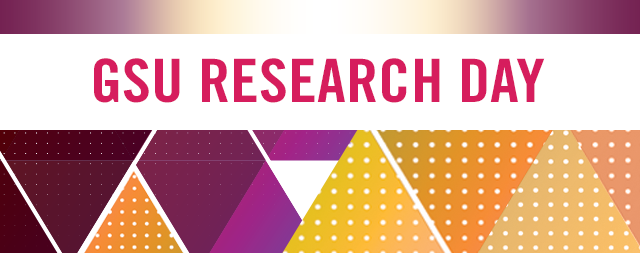Students’ Perception of a Psychosocial Level 1 Fieldwork
Type of Presentation
Event
Location
Hall of Governors
Start Date
4-1-2016 1:00 PM
End Date
4-1-2016 3:00 PM
Abstract
Mental health plays a major role in all aspects of occupational therapy. Practitioners provide mental health treatment and prevention service to individuals across the lifespan with a concentration on function and independence. Fieldwork provides numerous opportunities for hands on experience. Knowledge gained can be used in any type of future health care setting.
Due to the limited number of occupational therapists practicing in mental health, this research study aimed to understand the impact of a level I psychosocial fieldwork as perceived by Master of Occupational Therapy alumni.
A qualitative research design was used to collect and analyze the data. Forty-six Governors State University Master of Occupational Therapy alumni who graduated within two years of the study were recruited through e-mail. Five participants completed a demographic survey and face to face interview on the university campus or via video chat.
The themes that emerged from the data were uncertainties and fears regarding a psychosocial fieldwork, greater awareness, personal and professional benefits, and the value of a fieldwork experience in mental health.
Direct experiences in a mental health setting can greatly influence the career direction for occupational therapists. Without having this experience, participants may have left the academic setting with pre-existing negative perceptions and biases about mental health. Fieldwork experiences have profound influence on determining an occupational therapy student’s future practice choice. Mental health is an important area of study that should be considered a practice area for fieldwork since occupational therapy views a person holistically, including the psychosocial aspect of a person.
Presentation File
wf_yes
Students’ Perception of a Psychosocial Level 1 Fieldwork
Hall of Governors
Mental health plays a major role in all aspects of occupational therapy. Practitioners provide mental health treatment and prevention service to individuals across the lifespan with a concentration on function and independence. Fieldwork provides numerous opportunities for hands on experience. Knowledge gained can be used in any type of future health care setting.
Due to the limited number of occupational therapists practicing in mental health, this research study aimed to understand the impact of a level I psychosocial fieldwork as perceived by Master of Occupational Therapy alumni.
A qualitative research design was used to collect and analyze the data. Forty-six Governors State University Master of Occupational Therapy alumni who graduated within two years of the study were recruited through e-mail. Five participants completed a demographic survey and face to face interview on the university campus or via video chat.
The themes that emerged from the data were uncertainties and fears regarding a psychosocial fieldwork, greater awareness, personal and professional benefits, and the value of a fieldwork experience in mental health.
Direct experiences in a mental health setting can greatly influence the career direction for occupational therapists. Without having this experience, participants may have left the academic setting with pre-existing negative perceptions and biases about mental health. Fieldwork experiences have profound influence on determining an occupational therapy student’s future practice choice. Mental health is an important area of study that should be considered a practice area for fieldwork since occupational therapy views a person holistically, including the psychosocial aspect of a person.


Other Presentation Disciplines:
Dr. Caren Schranz is an Assistant Professor of Occupational Therapy in the College of Health and Human Services. Ms. Clare Branson, Ms. Therese Chukwu, Ms. Katie Essary, Ms. Chelsea Newton, Ms. Emily Peppin, and Ms. Megan Szarzynski are graduate students in Occupational Therapy in the College of Health Human Services.